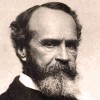Why have I always told you that the greatest way to change the world is to secretly commit little acts of compassion? It does not matter that people know what you are doing, but rather that you do it. When a large enough number of people finally do something, or something is done enough times, be it prayer or vegetarianism or whatever, it will then happen everywhere, to everyone. It will suddenly seem just normal. […] You must behave as if your every act, even the smallest, impacted a thousand people for a hundred generations. Because it does.
Thomas "Thom" Hartmann (b. 1951) American broadcaster, psychotherapist, businessman, political commentator
The Prophet’s Way: A Guide to Living in the Now, “The Hundredth Monkey” (1997)
(Source)
Often quoted as:
The most powerful way to change the world is to secretly commit little acts of compassion. You must behave as if your every act, even the smallest, impacted a thousand people for a hundred generations. Because it does.
Quotations about:
consequence
Note not all quotations have been tagged, so Search may find additional quotes on this topic.
You should always choose the lesser of two evils.
[De duobus malis semper minus tamen est eligendum.]
Thomas à Kempis (c. 1380-1471) German-Dutch priest, author
The Imitation of Christ [De Imitatione Christi], Book 3, ch. 12, v. 2 (3.12.2) (c. 1418-27) [tr. Knox-Oakley (1959)]
(Source)
In this context, Thomas is speaking of the evil (suffering) of resisting temptation and losing out on fun times in this world, compared to the evil of eternal damnation, e.g.,
If thou say, that thou art not able to suffer much, how then wilt thou endure the fire hereafter? Of two evils the less is always to be chosen. That thou mayest therefore avoid the everlasting punishment, endeavour to endure present evils patiently for God's sake. [Anon. (1901)]
See also Cicero.
(Source (Latin)). Alternate translations:
Of two evils, the less evil is to be taken.
[tr. Whitford/Raynal (1530/1871)]
Of two evils, the lesser is to be chosen.
[tr. Whitford/Gardiner (1530/1955)]
Of two evils the lesse is alwaies to be chosen.
[tr. Page (1639), 3.12.5]
Nature, as well as Religion, teaches Men, of Two Evils to choose the less.
[tr. Stanhope (1696; 1706 ed.), 3.13]
Of two evils, the least is to be chosen.
[tr. Payne (1803), 3.9.4]
Of two evils the less is alway to be chosen.
[ed. Parker (1841)]
Of two evils, the least is to be chosen.
[tr. Dibdin (1851), 3.10.1]
Of two evils we ought always to choose the less.
[ed. Bagster (1860)]
Of two evils we should always choose the less.
[tr. Benham (1874)]
Of two evils the less is always to be chosen.
[tr. Anon. (1901)]
Of two evils, the lesser is always to be chosen.
[tr. Croft/Bolton (1940)]
Of two evils always choose the less.
[tr. Daplyn (1952)]
Of two evils, always choose the lesser.
[tr. Sherley-Price (1952)]
One must always choose the lesser of two evils.
[tr. Knott (1962)]
You must always choose the lesser of two evils.
[tr. Rooney (1979)]
Always choose the lesser of two evils.
[tr. Creasy (1989)]
The recklessness of their ways destroyed them all.
[Αὐτῶν γὰρ σφετέρῃσιν ἀτασθαλίῃσιν ὄλοντο.]
Homer (fl. 7th-8th C. BC) Greek author
The Odyssey [Ὀδύσσεια], Book 1, l. 7ff (1.7) (c. 700 BC) [tr. Fagles (1996)]
(Source)
Original Greek. Alternate translations:
- "O men unwise, / They perish’d by their own impieties!" [tr. Chapman (1616)]
- "They lost themselves by their own insolence." [tr. Hobbes (1675), l. 9]
- "They perish’d self-destroy’d / By their own fault." [tr. Cowper (1792)]
- "For they were slain in their own foolishness." [tr. Worsley (1861), st. 2]
- "Destin'd as they were / In their mad arrogance to perish; fools!" [tr. Musgrave (1869)]
- "For they in their own wilful folly perished." [tr. Bigge-Wither (1869)]
- "For through the blindness of their own hearts they perished." [tr. Butcher/Lang (1879)]
- "They died of their own souls' folly." [tr. Morris (1887)]
- "For through their own perversity they perished." [tr. Palmer (1891)]
- "For they perished through their own sheer folly." [tr. Butler (1898)]
- "For they perished through their own deeds of sheer recklessness." [tr. Butler (1898), rev. Kim/McCray/Nagy/Power (2018)]
- "For through their own blind folly they perished." [tr. Murray (1919)]
- "For their own recklessness destroyed them all." [tr. Fitzgerald (1961)]
- "They were destroyed by their own wild recklessness, / fools." [tr. Lattimore (1965)]
- "Fools, they foiled themselves." [tr. Mendelbaum (1990)]
- "By their own mad recklessness they were brought to destruction, childish fools." [tr. Merrill (2002)]
- "It was their own transgression that brought them to their doom." [tr. DCH Rieu (2002)]
- "It was through their own blind recklessness that they perished, / the fools." [tr. Green (2018)]
- "They all died from their own stupidity, the fools." [tr. Johnston (2019)]
Ideas have consequences, and totally erroneous ideas are likely to have destructive consequences.
Steve Allen (1922-2000) American composer, entertainer, and wit.
More Steve Allen on the Bible, Religion, and Morality, “Authenticity of the Bible” (1993)
(Source)
Policies are judged by their consequences but crusades are judged by how good they make the crusaders feel.
Thomas Sowell (b. 1930) American economist and political commentator
Compassion vs. Guilt, and Other Essays (1987)
(Source)
No action, whether foul or fair,
Is ever done, but it leaves somewhere
A record, written by fingers ghostly,
As a blessing or a curse, and mostly
In the greater weakness or greater strength
Of the acts which follow it.
Deserves death! I daresay he does. Many that live deserve death. And some die that deserve life. Can you give that to them? Then be not too eager to deal out death in the name of justice, fearing for your own safety. Even the wise cannot see all ends.
J.R.R. Tolkien (1892-1973) English writer, fabulist, philologist, academic [John Ronald Reuel Tolkien]
The Lord of the Rings, Vol. 2: The Two Towers, Book 4, ch. 1 “The Taming of Sméagol” (1954)
(Source)
Frodo recalling the words of Gandalf (approximately) in The Fellowship of the Ring.
The hell to be endured hereafter, of which theology tells, is no worse than the hell we make for ourselves in this world by habitually fashioning our characters in the wrong way. Could the young but realize how soon they will become mere walking bundles of habits, they would give more heed to their conduct while in the plastic state. We are spinning our own fates, good or evil. Every smallest stroke of virtue or of vice leaves its never so little scar.
William James (1842-1910) American psychologist and philosopher
The Principles of Psychology, Vol. 1, ch. 4 “Habit” (1890)
(Source)
This chapter originally published in Popular Science Monthly (Feb 1887).
Happiness is not a reward — it is a consequence. Suffering is not a punishment — it is a result.
Robert Green Ingersoll (1833-1899) American lawyer, agnostic, orator
“The Christian Religion,” Part 2, The North American Review (Nov 1881)
(Source)
Deserves it! I daresay he does. Many that live deserve death. And some that die deserve life. Can you give it to them? then do not be too eager to deal out death in judgment. For even the very wise cannot see all ends.
J.R.R. Tolkien (1892-1973) English writer, fabulist, philologist, academic [John Ronald Reuel Tolkien]
The Lord of the Rings, Vol. 1: The Fellowship of the Ring, Book 1, ch. 2 “The Shadow of the Past” [Gandalf] (1954)
(Source)
Frodo later recounts these words (approximately) to Sam in The Two Towers.
Shallow men believe in luck, believe in circumstances — it was somebody’s name, or he happened to be there at the time, or it was so then, and another day would have been otherwise. Strong men believe in cause and effect.
Ralph Waldo Emerson (1803-1882) American essayist, lecturer, poet
“Worship,” The Conduct of Life, ch. 6 (1860)
(Source)
















